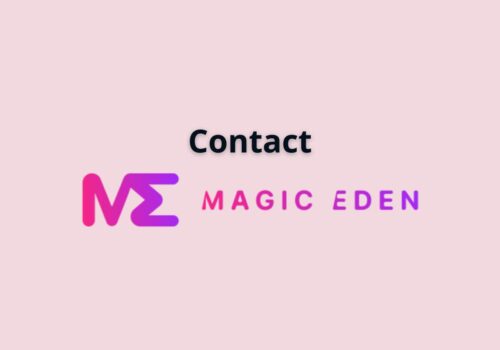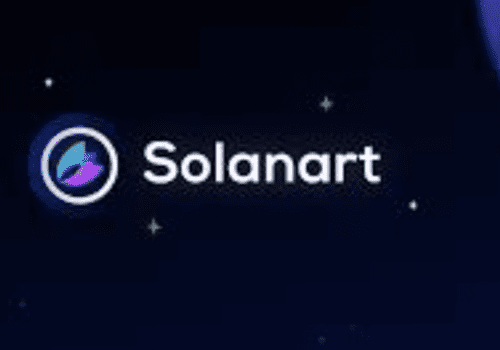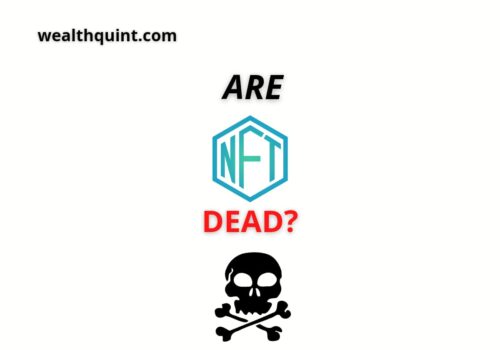If a person wants to get people to invest in a certain NFT, they’re “shilling.” Cryptocurrency marketing is what it all comes down to.
The term “shilling your NFT” refers to people on social media displaying or dropping a link to your non-fungible token so it can be seen and maybe bought.
Shilling is the practice of promoting one’s own products or services. Both manufacturers and sellers of NFTs may advertise their products in order to attract customers.
Finally, the term shill has been taken lightly by the community and can be used interchangeably with self-promotion.
For example, the administrator of a Discord server may designate a channel just for the marketing of creators’ work, ensuring that the artists who are members of their community have a reliable avenue for their next sale.
What Is NFT Shilling?
Shilling for an NFT is a term that refers to the practice of promoting and encouraging others to do the same. In a nutshell, it’s a type of cryptocurrency advertising.
On social media networks such as Twitter and Facebook, you can use the expression “shill your NFT” to refer to the practice of marketing your non-fungible token (NFT). That is, you are using this word to advertise or market your NFT.
Despite its widespread use, the term “shill” carries a negative connotation in the English language, implying that the vendor will promote anything that will generate revenue, regardless of whether the product is a good value or not.
It is frequently accompanied by the term “shameless.” In the nonprofit industry, self-promotion can come across as shilling can have the same negative connotation.
Many NFTers, on the other hand, acknowledge that some shilling is necessary given the competitive nature of the NFT market.
After all, virtually everyone who purchases NFTs will eventually need to sell a share, which can be challenging without advertising in a frequently illiquid market.
What Does Shill Mean In NFT?
Shill in NFT means the act of publicizing one’s own creations or for-sale commodities. Both NFT developers and NFT merchants may use shilling to promote their products to potential purchasers. On social media networks such as Twitter and Facebook, you can use the expression “shill your NFT” to refer to the practice of marketing your non-fungible token (NFT). That is, you are using this word to advertise or market your NFT.
In the seventeenth and eighteenth centuries, English coinage used the term “shilling” to refer to cash. The term ‘shill,’ which is frequently translated as a stooge,’ has been used in casinos for a long period of time.
The term “shilling” has a bad reputation in the gaming industry due to its negative implications. This word is used by gamblers who use the casino’s funds to keep the action running when there are not enough players.
If you’re promoting a project on NFT, simply publishing or sharing a link is sufficient. There is nothing wrong with it as long as it is sensible and factually accurate. It’s all about marketing and the promotion of crypto assets.
While the majority of people do it out of a sense of commitment to a cause, there are those who are there solely for financial gain.
As a buyer, you must be vigilant for fraud in the NFT market, just as you would in any other industry. On the internet these days, there is widespread suspicion of NFT shilling. Several NFTs have undoubtedly been overstated.
Additionally, a few individuals are compensated to advertise, which is problematic.
To exert influence over others, they conceal and deceive them about this truth. John McAfee, a cryptocurrency guru, recently made headlines for doing just that. He has previously been accused of accepting bribes in exchange for promoting cryptocurrency and investment possibilities.
He is being investigated for promoting initial coin offerings (ICOs) to his huge network without disclosing that he was compensated for doing so. It is OK if you are promoting NFTs and offering information or assisting others in grasping the significance of a particular NFT.
Also Read: NFT Royalties: Whar are They and How do They Work?
Is Shilling NFT Illegal?
No, Shilling NFT is not considered Illegal. Shilling arises when a coin makes the promise of eradicating world hunger. While shilling is illegal in certain financial markets where fraud is a possibility, there is a grey area where the shill’s actions must be proved to have put uninformed parties at danger of loss.
It gets murky when there are no standards or regulations preventing the promotion of a specific product. What happens to the individual when they are compensated? Despite the fact that it is legal, many individuals are curious.
Due to the possibility of fraud, traditional financial markets ban the practice of “shilling” a product. However, things are not as straightforward as they appear. Shilling operations must have put the uninformed people in jeopardy.
Where Can I Shill My NFT?
There are numerous venues where you can promote your NFT. Social media networks like Twitter, Facebook, and Instagram are the most common.
There are other options, such as using Telegram, Discord, or even Reddit. Any time NFTs are brought up, it’s safe to assume they’ll be debated by others.
Make sure that you’ve joined a few Facebook groups where people are looking for NFTs and discussing them enthusiastically. A post with a detailed description of the NFT you’re trying to promote, along with a link, is all that’s necessary.
In order to avoid becoming a bother, make sure you don’t post many times in a row. You just need to introduce yourself once, and if somebody shows an interest, you can provide them with additional information.
Using Instagram to promote an NFT is a brilliant idea. Using Instagram stories, you may grow your following and spread the word about the NFT. It’s a fantastic idea to use Twitter because even a single tweet can reach a significant number of people.
With this method, you can get the word out about your NFT in a short amount of time.
You can also promote them on message boards and social networking sites. People may become suspicious of them, making them less effective than social media. Forums and chatrooms are popular places for scammers to advertise their wares.
There is a large section of the crypto community on Telegram, making it an ideal venue for a shilling. As a matter of fact, Telegram is the most popular route for crypto enthusiasts to communicate.
While you’re promoting NFTs, setting up a channel on YouTube is a terrific approach to get the word out. It’s fantastic that Discord allows you to have many chats on the same channel.
The NFT marketplaces also allow for a shilling. Rarible, OpenSea, and Nifty are also good places to put your NFTs out there. Select a platform for promoting your NFT (social media platforms are good places to start.)
Then, locate a collector that is looking for people to sell their NFTs on their behalf. Finally, include some information about your NFT and a link to a location where it can be viewed. Additionally, share information about your NFT on your personal social media profiles.
Shilling is all about capturing the audience’s attention and piquing their curiosity. Respond to questions and comments, provide images, and build a story to maintain interest.
You can discuss the value of NFTs and promote the one you favor in a non-intrusive manner. When a potential buyer discovers your articles and links and contacts you for additional information, you can supply pertinent details and facts.
Also Read: NFT Smart Contract Explained
Conclusion
NFTs can be a true win-win situation for sellers and purchasers, as well as artists and musicians. NFTs are intrinsically linked to works of art, and their popularity among artists and musicians may suggest that the NFT market will not encounter the same issues as the ICO business.
However, caution should be exercised to ensure that NFTs transactions are conducted in a clear and transparent manner and that all parties involved understand the applicable laws, the nature of the product, and the mechanism through which the product achieves truly provable uniqueness.




